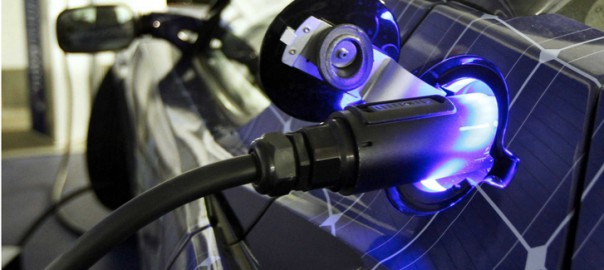Car buyers consider many factors before making a purchase – including comfort, style and efficiency. If they were honest and realistic about how much they drive, a majority of consumers inclined to purchase electric vehicles would choose battery-powered cars that can travel fewer than 100 miles on a full charge, new research finds. And according to the same study, that statistic isn’t likely to change unless battery costs drop dramatically, despite the drastic change that represents from gas-powered vehicles.
Tesla’s Model S has a range of up to about 300 miles on a fully charged battery, and a luxury car price to boot, but most electric-car models can travel no more than about 100 miles on a full charge. The new research finds that most customers will find the 100-miles or less category adequate to meet their daily driving needs, given battery costs now and in the likely near future. This is based on data that shows how far people actually drive each day.
Customers may prefer cars that are capable of driving hundreds of miles without stopping, but they may only rarely need that extra range. It may be more cost-effective to use one car for daily commutes and rent another vehicle for long trips.
However, a sticky question remains: Can car companies count on customers to purchase cars based only on economics-based considerations? Probably not, say other researchers. And, based on plans made available publicly, car manufacturers appear to agree with them.
Zhenhong Lin, a senior researcher at Oak Ridge National Laboratory in Tennessee, was trained as an engineer and now analyzes the economics and public policies related to transportation energy. His study in the journal Transportation Science, released in August, explored the multiple factors behind customer choices, including how far people actually drive on a daily basis, the variation in their driving patterns and how battery costs would have to decrease to promote electrically powered vehicles with longer ranges.
Range Issues
With gas-powered cars, driving range isn’t really an issue. A car that gets 30 miles per gallon and has a 14-gallon gas tank can go over 400 miles without refueling. And if you are about to run dry, it’s easy to find a place to fill up.
Electric vehicles don’t use gas at all – unlike a traditional Toyota Prius or other hybrid, in which various energy-capturing technologies charge an electric battery that then applies that energy to help move the car. Nor do electrics have backup gas engines like plug-in-hybrids do – this category includes one version of the Toyota Prius, the Chevrolet Volt (= Vauxhall Ampera), and others. For plug-in hybrids, the gas engine usually kicks in after a battery powers the first several to couple of dozen miles, depending on the particular model.
The longest range for an electric car is the 400 miles reported for the $100,000-plus Tesla Roadster, after a recent battery update. Most mass-market electric vehicles usually start at about $30,000. Rebates from both the federal and state levels can reduce the cost by thousands. Most of these cars boast ranges of fewer than 100 miles, including the Nissan Leaf, among others. Electric vehicles cost more than their gas equivalents, and there are far more gas stations than electric-charging stations if a driver needs to stop to top up the car’s battery. Most hybrids and plug-in hybrids have ranges similar to cars powered entirely by gas.
Read more: Inside Science
